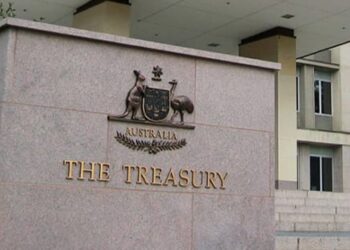A number of significant changes to the Reserve Bank’s (RBA) governance arrangements have been proposed in submissions made to the RBA review by industry associations.
The Australian Banking Association (ABA) has suggested that a dual board structure should be considered, consisting of a corporate governance board and a monetary policy board with a limited number of seats on each board.
According to the ABA, the corporate governance board would be chaired by an independent director instead of the RBA governor, while board minutes and deliberations would be reported to the Treasurer and summarised publicly.
Meanwhile, the monetary policy board would continue to execute monetary policy and meet per its regular monthly schedule.
This board would reflect a broader skills matrix by consisting of a limited number of voting members — such as the governor and the deputy governor — alongside monetary policy experts from outside of the central bank, and experienced representatives of key sectors of the real economy. This latter category would be to “reflect the practical impact on the real economy of monetary policy implementation”.
The ABA is unsure whether these experienced representatives should be granted voting powers. It did, however, suggest that if granted voting powers, they would need to cut all ties to for-profit or not-for-profit entities in the private sector.
This board would also include a Treasury Department member in a non-voting capacity to support the alignment of fiscal and monetary policy and to confirm the RBA’s independence from the government.
In its submission, the Business Council of Australia (BCA) floated a similar idea, noting that the RBA is quite unusual in that it does not separate governance from monetary policy decision-making.
The BCA argued that by separating monetary policy decision-making from the board into a separate committee, the board could perform more of a governance role and include non-executive board members who would report independently to the Treasurer and Parliament on the performance of the bank and monetary policy.
Commenting on the board make-up, BCA said that while current external, part-time, board members have the benefit of high-level business and commercial board experience, the board may also benefit from more members with the technical expertise to further scrutinise the policy recommendations.
“In practice, this could enhance external scrutiny and input into monetary policy decisions,” BCA said.
Regarding the Treasury Secretary’s current ex officio role on the RBA board, the BCA said that this appeared to be out of step with international practice.
“Having a representative of the government in the board room could be perceived as compromising the independence of the bank and is a potential conflict of interest in so far as fiscal and monetary policy are at cross-purposes,” the BCA claimed.



